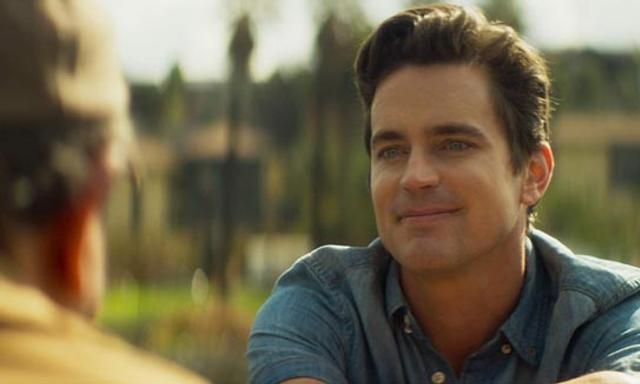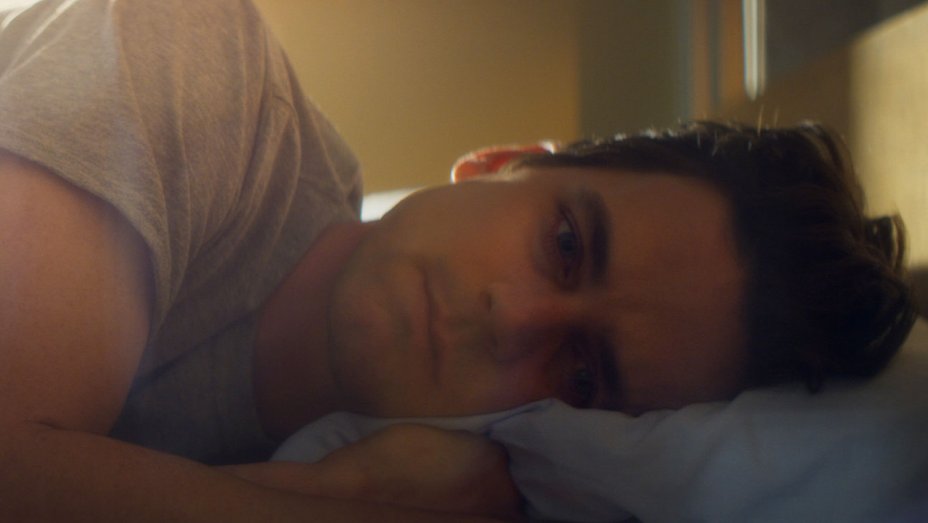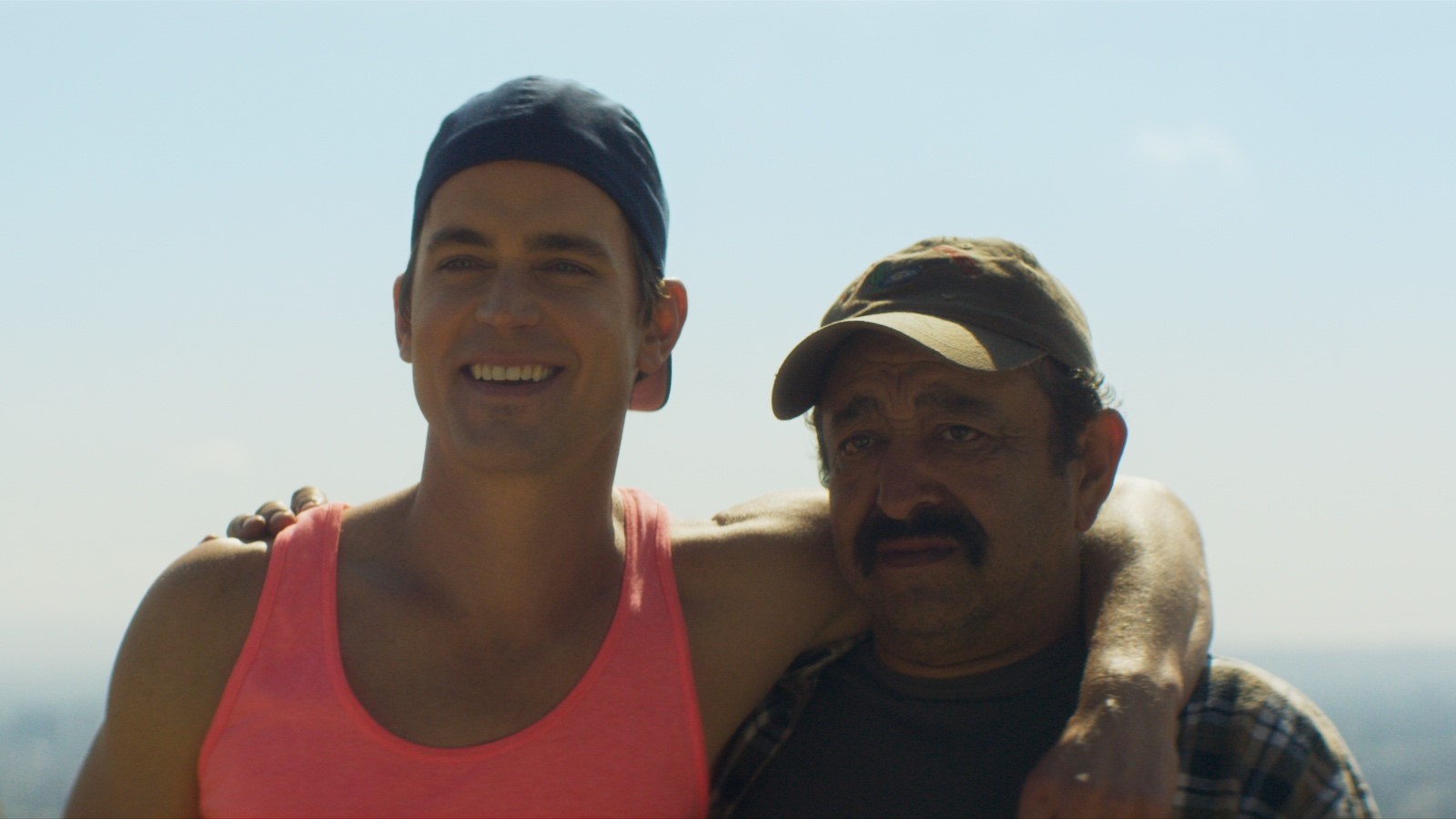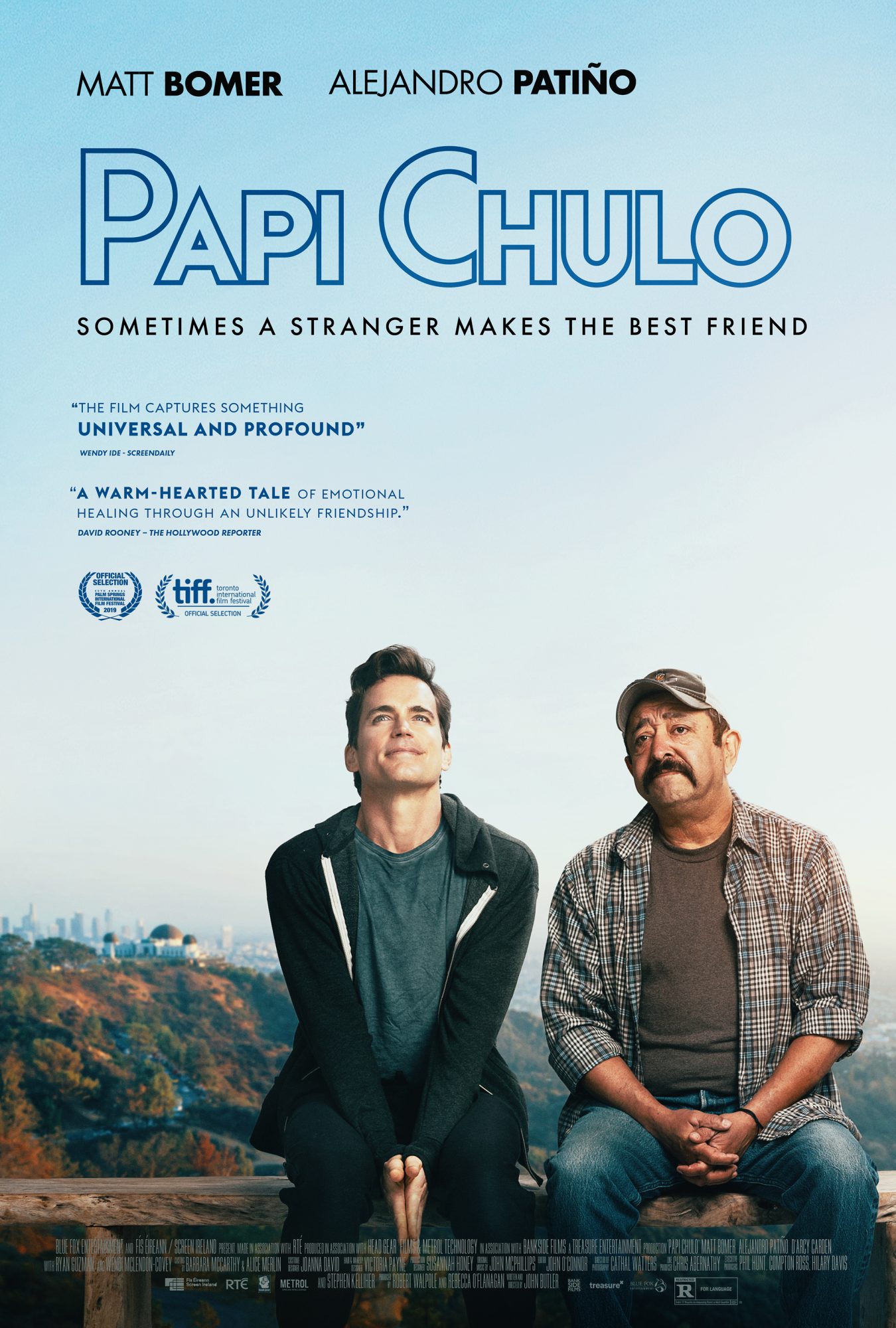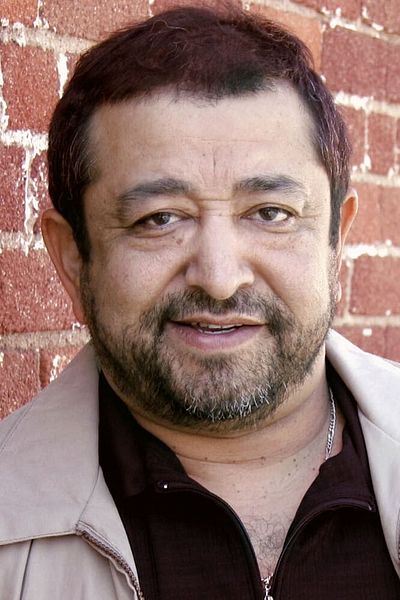'Papi Chulo' hits cinemas this week and it's a film in a league all its own.
Starring Matt Bomer and Alejandro Patino, 'Papi Chulo' follows a friendship between a TV weatherman called Sean and his Latino migrant employee, Ernesto. It's a fascinating exploration of loneliness, cultural difference and human understanding. Don't be surprised if you find yourself getting weepy watching it.
Its director John Butler was over in Dublin with Bomer and Patino to promote 'Papi Chulo' at ADIFF. It now hits cinemas nationwide from Friday (7th June).
Check out our chat here:
So far you guys have brought 'Papi Chulo' to Turin, Toronto, Palm Springs, London - what has the audience response been like with the film so far?
John: It's been great across the board, really gratifying. Every audience I think has laughed which always calms the nerves at the outset of a film. But I think it's important as well that they react to the emotion in it and people have been moved by it. So yeah, it's been a terrific experience so far and tonight in Dublin will be interesting too.
Alejandro: For me, everybody loves my phone conversations with my wife. That’s where I got the most reactions from people. When we were in Palm Springs there was a lot of ‘Ooos’ and ‘Ah yeahs’, which was great.
When I was watching this film like it struck me as a tragicomedy because I wasn't sure if I was meant to be laughing or crying because on the one hand it's such a sad story. For you John, when you were kind of writing and directing it, were you thinking of it as a tragic comedy?
John: It's more a reflection of how I see the world to be: fundamentally funny and sad at the same time. I always think the analogy with laughter at a funeral is an interesting one in that if you find yourself laughing at a funeral it's usually uncontrollable because it's forbidden. And drama and comedy are actually overlapping experiences of being alive. I think there isn't any respect for the boundaries between comedy and drama in life because it's random and chaotic. So it's nice to try and write something that does both, sometimes at the same time. I love comedy-dramas, and my favorite films to watch are comedy-dramas. I think they're always very provocative because you feel one way and then you're brought somewhere else.
And how about for you guys performing this kind of film, did you feel yourselves kind of switching between the modes? I'm thinking for yourself, Matt, your character particularly goes through the biggest highs and lows in terms of emotion in this film.
Matt: For me I think what we were always working towards is comedy is tragedy plus time. It was important to really ground that tragedy in something very specific and real and let the humour come out of that. The comedy comes out of the public persona he tries to put forth and the way he tries to bury and overcome the pain. I thought there was a loneliness that John captured in this script that is very specific to L.A. but is also universal in this day and age with people on their devices trying to connect to each other and have some kind of control over even their intimate romantic life. And then thankfully for Sean, Ernesto comes into the picture who has the compassion and openness to help him face things in his life and ultimately, hopefully heal.
And then for yourself, Alejandro, when I was watching your performance I was thinking about how in comedy you often get the normal person surrounded by all kind of bonkers stuff happening around them. Do you find that kind of character like this requires less preparation and it's kind of easier to play someone who's totally straight, or is it easier to kind of play the more extreme characters do you think?
Alejandro: Well my career has been the character stuff and the comedy stuff. I play the Mexican in that respect. The beauty about having this role written the way it was is I can actually get my teeth into it. With characters, you get that one scene or a couple of scenes. Here I finally got a chance to create the character. For me, as John was telling me in our first interview, we have to play him straight. He saw my work before and says “you're a funny actor but I know I can trust you in portraying the serious part.” So what I focused on was being real and not going for the laughs and listening. Ernesto is a listener, and Sean actually says that - you're a good listener. So in that respect I loved the opportunity that I was given to be a part of this project. The script was amazing when I read it. And then my agent read it and we said we got to do it, we have to be a part of this.
One of the things I love as well about ‘Papi Chulo’ is I think that it's such a realistic portrayal of how difficult it actually is to form a friendship particularly in your adulthood and particularly among males. Was that a draw for you to this film?
John: I think you're right it is. I think adults close down and calcify as they move through their life and either build their own family units around them or have their friend group established - Jerry Seinfeld had a joke about that where he's like “the idea of making a friendship in your 30s is like, you know, you seem very nice but we're not looking for anybody right now.” And I think that is the human experience. You forget to stay open because your life becomes so busy and you just don't seem to have the time. So yeah, it's nice to write about two fully adult guys who are enriched by a friendship.
I think male friendship is something you've explored in your work before, John, between ‘The Stag’ and ‘Handsome Devil’. Were you thinking of these three films as a kind of thematic trilogy or do they just happen to have that kind of idea in common?
John: No, when I was writing this I thought it was a radical departure, and in many ways it is, certainly the way it looks and the tone and getting out of Ireland is a huge part which lends the film a whole different flavour. So I do think it's radically different but yeah, I think the theme of male platonic friendship is very important to me. The value of it is fascinating to poke around and I think particularly in a big city which these guys have been living in for so long, you can feel isolated in a way that's distinct from any other city.
Matt: Yeah and I think of Sean as somebody who's really sequestered himself off from the world and he has a public persona he affects at work but he really does have this vast gaping vortex of loneliness where he's trying to date and control his life online. I think men are sometimes unfairly categorized as not being good listeners and that's really what he needs is just someone to hear him out and then a nice guy shows up in his life and is able to let him release some of the things that are holding him back.
Alejandro: It's funny how you were discussing about the male friendships because for me, this is exactly what I've seen develop in terms of filming this. We have developed this friendship. And to me that's the beautiful part about finally seeing it up there and then still hanging out with these guys.
Can you tell me a bit more about that, how you see the friendship in the film as mirrored by the friendship you guys formed making the film?
John: I suppose the thing that maybe the three of us have in common is that through our work we get to experience new relationships and I think that's one of the great privileges of being in the film and TV business. If you work in a bank in a city you have a 45 year career where perhaps you don't see many people, maybe twelve, plus your family plus your school buddies. So we're really privileged to get to show up and, like Alejandro was saying there, you go onto a film set or TV series or a theatre run and you get to make these friendships have may last for life.
Matt: It’s a gypsy lifestyle, you know, you have to go on to new groups of people and really open yourself up because the work requires that. So you do make a lot of fast new friendships.
Alejandro: And it's such a small industry that you eventually see each other on other projects, or in festivals, or you see a play that your fellow actors are in. For me that's what I love about acting and theatre and film stuff, these friendships I developed. I fell in love with these guys, especially John and the crew from Ireland. When we shot, it was such a giving setting for me, working with the whole crew, and such a variety of different cultures.
John: Yeah we brought over an Irish camera department, sound department and first A.D., and they were editing as well. So it was really enjoyable to see those two communities meshing as well as they did. It was a joy.
Where did the name ‘Papi Chulo’ came from - when I looked it up I got “handsome daddy” but also “attractive man or pimp”?
John: You know, it's the only question that I'm reluctant to answer because I enjoy the ambiguity that's contained within those multiple meanings. I think they all actually apply in some ways, and they apply to both characters and it's nice for an audience to just try and feel it themselves and see what they think. It has a particular resonance for me in a couple of different ways and if the audience shares that, then that's great, but sometimes it's nice to just let the mystery play out. I just love the play of the words.
A summary I found online described the film as “a darkly comedic reflection on class ethnicity and companionship in contemporary Los Angeles.” It's a really apt description for all the complex themes and explorations at play here. Was there a particular theme or issue explored in the film that you found particularly interesting or ended up thinking more about more while making the film?
John: I have to say that for me loneliness and the exploration of loneliness were kind of revealed to me during and after the film, that it's perhaps less frequently explored on film than I would have thought. It's a weird subject to get into because it's about an emptiness, it's about what isn't there and as such, rendering it visually is always kind of complex. In the course of making this film and particularly in framing and shooting Matt in these glossy interiors or against a wide open landscape, it became clear that the theme of loneliness is under explored generally, because people are so afraid of it, rightly. But it was really fun to then just go towards that, and I think Matt's great gift as an actor is he had the courage to see the value in that and go for it. You know, loneliness is universal and I think if you're living your life right, you will experience that at some point. So it was fun to get into that.
Matt: I also just love that the hero of the movie is this guy from a completely different culture who was willing to open himself up to a stranger and have a dialogue with him and that in times when we can be so divisive, we have a relationship that beautifully illustrates that's certainly not the way it should be or needs to be. So I thought that became more and more resonant as we were making the film.
Alejandro: For me, it was the loneliness part. The more and more I watch the film, I see Ernesto’s point of view with Sean and understand where he's coming from. At first, he's just the boss who's paying me. And I don't know, I don’t start realising what his loneliness is until the second time we go up into Griffith Park and do a little hiking. That's where I reveal myself to Sean and say “you know, I know who you are and what you are all about, and this is what I'm all about.” There's no pretentiousness or nothing that I'm looking down upon you. So that's what I got from Ernesto’s role of being his sidekick.
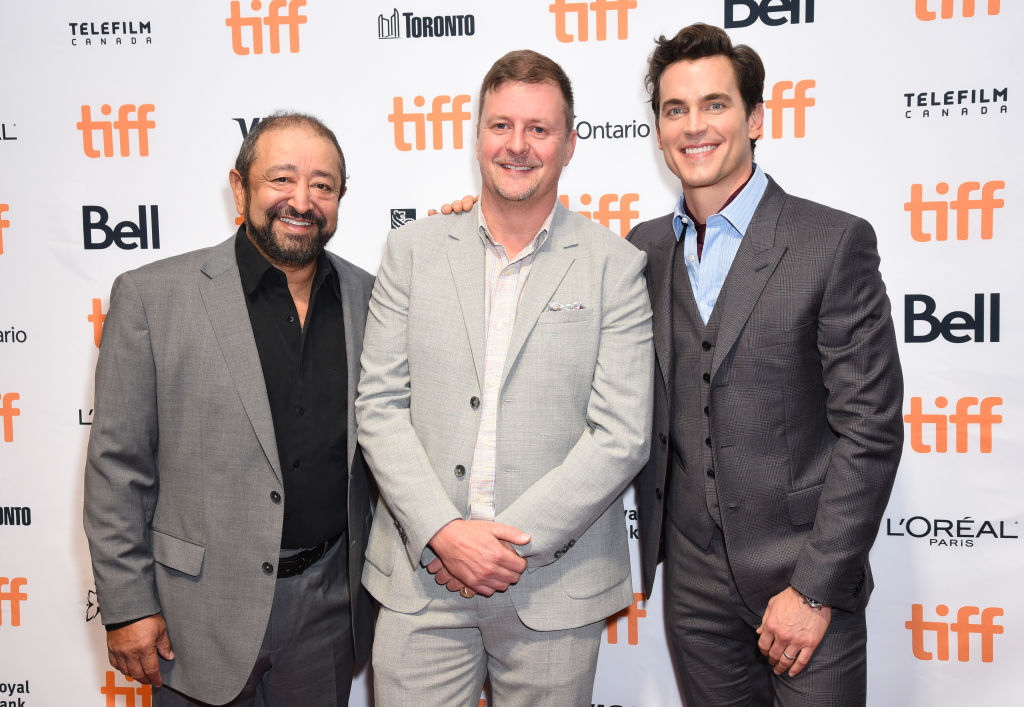 Alejandro Patino, John Butler, and Matt Bomer attend the "Papi Chulo" premiere during 2018 Toronto International Film Festival
Alejandro Patino, John Butler, and Matt Bomer attend the "Papi Chulo" premiere during 2018 Toronto International Film Festival
So guys just my very final question for you is what do you most hope for Irish audiences to take away from ‘Papi Chulo’?
John: I want them to enjoy it - as if that isn’t something that every filmmaker wants! But also I would like them to feel that it is universal. I think that's very important for every audience. It's not Irish, it's not American, it's not for the gay community, it's not for the Latino community. It’s really just a story about human beings trying to connect and if people can get to feel that it's about universal human experience, then job done.
Matt: I think having lived here when I was a kid as a fledgling actor and never knowing if I'd even get to be in a movie to now be back with an Irish filmmaker at the Dublin Film Festival is just so surreal, such a pinch me moment. I'm just looking forward to sitting with an Irish audience in that theatre that I used to sit in and watch other people's movies in and enjoying it that way.
Alejandro: Same, I can't wait to hear and feel the response of the people. Every screening that we've had has been a different audience with different reactions at certain points. My favorite one at this point has been Palm Springs. We had such a big response out of that one.
John: Dublin’s gonna beat that!
Matt: No pressure Dublin.
John: C’mon Dublin!
Alejandro: So, final thought, I just hope, like you said, that they enjoy it and see the differences in the culture that we don't have to put up these walls. Let's be open with everybody.
'Papi Chulo' hits Irish cinemas June 7th.
